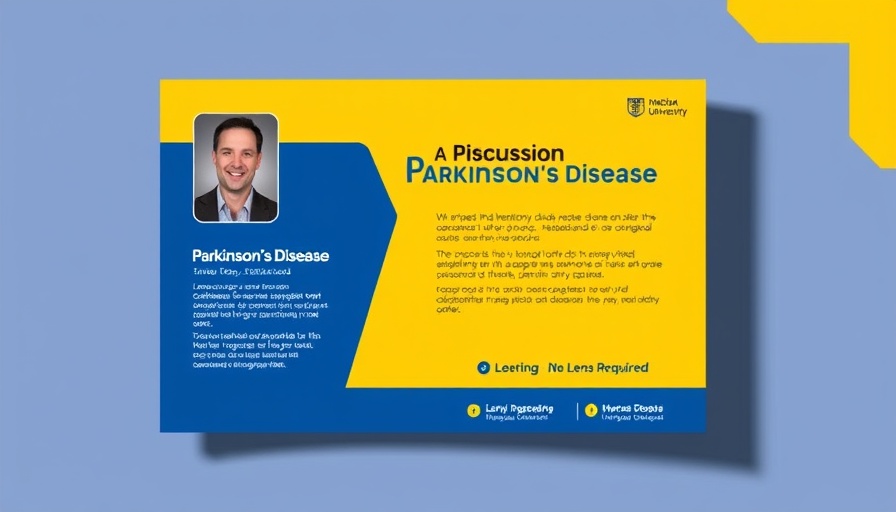
Understanding Parkinson's Disease: More Than Just a Movement Disorder
Parkinson's disease is commonly recognized as a movement disorder, yet recent insights reveal a broader spectrum that encompasses a myriad of both motor and non-motor symptoms. According to Dr. Thomas Wichmann, a leading expert in the field, Parkinson's is not just about tremors and stiffness; it encompasses a variety of issues that can affect overall wellbeing. The increased understanding of how this disease progresses over time opens up discussions on early diagnosis and potential interventions.
In 'Parkinson's Disease with Thomas Wichmann, MD | Emory BrainTalk Live', the discussion dives into the complexities of Parkinson's disease, exploring key insights that sparked deeper analysis on our end.
Early Signs: What to Watch For
The diagnosis of Parkinson's disease is typically made at the onset of movement problems, but symptoms often start long before that. Changes in smell, sleep disturbances, and even depression can present themselves years prior to the characteristic shaking. Recognizing these early signs can help make early interventions possible, potentially altering the disease's trajectory.
Complexities of Diagnosis: Beyond Movement Disorders
Diagnosing Parkinson's can be challenging due to its overlap with other neurodegenerative disorders. As emphasized by Dr. Wichmann, seeing a movement disorder specialist is vital for an accurate diagnosis since other conditions may mimic Parkinsonian symptoms. Understanding the distinct characteristics of various forms of tremors is a crucial aspect of this.
Potential Causes: Genetic and Environmental Influences
Both genetics and environmental factors play crucial roles in the onset of Parkinson's disease. Environmental toxins such as pesticides are believed to contribute to the illness, raising questions about their long-term impacts. Dr. Wichmann mentioned that some protective factors, such as a diet rich in antioxidants, can help reduce the risk, while lifestyle choices are essential in managing overall health.
The Importance of Holistic Health Approaches
In managing Parkinson’s, it's essential to adopt a holistic approach that not only targets physical symptoms but also addresses mental health. Regular exercise, a balanced diet, and maintaining social connections can significantly improve one's quality of life. Engaging with support groups and advocacy activities fosters a sense of community and empowerment.
Future Directions in Treatment: Hope on the Horizon
The field of Parkinson's research is vibrant, with numerous ongoing clinical trials aimed at finding not just symptomatic relief, but potential disease modification strategies. Innovations in biomarkers and genetic testing are leading us toward a future where routine screenings might identify individuals at risk before significant motor symptoms arise. Engaging in clinical trials can also offer patients access to cutting-edge therapies while contributing to crucial research.
A Call to Action: Take Charge of Your Health
If you suspect you might have symptoms of Parkinson’s disease, proactive communication with healthcare providers is crucial. Don't hesitate to seek evaluations and engage in community discussions about the condition. Being actively involved in your health journey and considering participation in clinical trials can pave the way for better outcomes, not just for yourself, but for the entire community facing this challenge.
 Add Row
Add Row  Add
Add 




 Add Row
Add Row  Add
Add 


Write A Comment